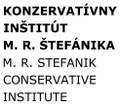

1. Establish the Rule of Law. Without the rule of law, economic freedom, personal liberty, and civil society are restricted, which increases economic risk thus reducing the potential for economic growth.
2. Protect Private Property. Private property is the foundation of wealth. If private property is not well protected, the incentives to work, save, and invest will be greatly diminished. Historically, people obtained private property by either buying or improving land and structures which added value. In the modern world, property is often intangible, resulting from the creation of such things as new art, music, literature, computer software, new pharmaceuticals, and other technologies. Those who create intangible property have the same right to full protection as farmers and homeowners do with their real property.
3. Remove All Price Controls. Prices are information. They allocate scarce resources and motivate future protection of those resources. Price controls eliminate the information that is necessary for rational economic decision making. Free markets, where prices are determined by supply and demand and where there are few restrictions on the buying and selling of goods and services, are in almost all cases superior – in terms of economic efficiency, resource distribution, and liberty – to any form of “managed” markets.
4. Establish Free Trade. Free trade among nations raises the level of economic well-being in all countries involved by improving the allocation of resources and increasing the extent of the market, thus lowering costs.
5. Limit Government Spending. Any government spending, where the costs exceed the benefits, and the cost-benefit ratio is inferior to a private sector alternative, reduces the general welfare of the people, rather than enhancing it.
6. Limit Taxation. Taxes reduce the incentives to work, save, and invest; thus reducing the supply of labor and capital, and thereby lowering the amount of investment and production. For every tax, there is a revenue maximizing rate; and when that rate is exceeded, government is left with less, rather than more, revenue. Taxes also reduce individual liberty by taking away the freedom to keep the fruit of one’s labor and capital.
7. Limit Government Regulation. Regulations almost always create costs, including the costs of loss of freedom; and if the benefits from the regulation do not exceed the costs, the people are worse off as a result of the regulation.
8. Remove Barriers to Business Formation. Entrepreneurs create most productive new jobs and many useful and desirable innovations. Government-imposed, costly, and time consuming restrictions on business formation unnecessarily reduce the number of new businesses, jobs, and innovation.
9. Encourage Ownership. People take better care of and manage real or intangible property better when they own it, whether it is a home, business, farm, pension, or medical savings account. Government policies that foster ownership lead to greater social stability and responsibility, which enhances the environment for investment, resulting in more economic growth.
10. Allow the Use of Sound Money. Stable money, which neither gains (deflates) or loses (inflates) value, is necessary to maximize economic growth. Unstable money (by adding to uncertainty) increases risks to businesses, workers, and consumers and results in lower levels of investment, job creation, and economic well-being. Governments which are unable to provide sound money should allow their citizens to use other government or privately produced monies (including gold and other commodities) for both transactions and contractual obligations.
Author serves as Director General of the Center for Global Economic Growth, Washington D.C.
Article was published in Slovak language in Conservative Letters 06/2006, a newsletter of the Conservative Institute.